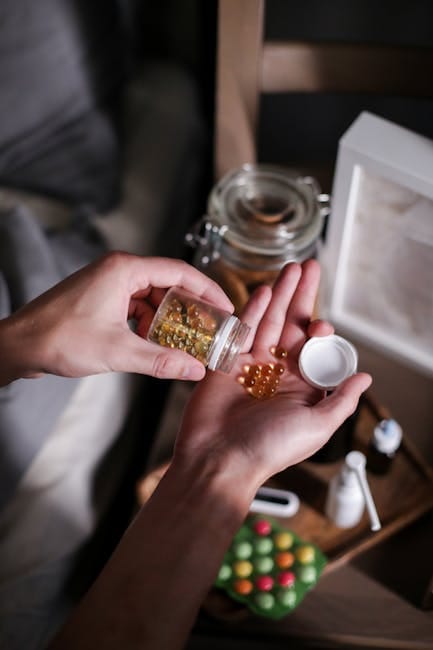The Ultimate Diet Plan to Cure Acne
Acne isn’t just a teenage problem; it’s an issue that affects millions of people worldwide. While there are countless creams, treatments, and medications available, many overlook the power of diet in managing acne. What if the secret to clearer skin lies in your kitchen? 🥦🥑 Let’s explore the ultimate diet plan to help cure acne, backed by science and nutrition experts.
Table of Contents
1. Introduction to Acne and Diet
2. Understanding the Acne-Diet Connection
3. Foods to Embrace for Clearer Skin
4. Foods to Avoid for Acne-Prone Skin
5. Sample Diet Plan for Acne-Free Skin
6. Conclusion
7. FAQs
Introduction to Acne and Diet
Acne is a common skin condition characterized by pimples, blackheads, and cysts. It can be influenced by genetics, hormones, and lifestyle choices. However, diet plays a crucial role in managing acne. By understanding the relationship between what you eat and your skin health, you can take proactive steps toward achieving a clearer complexion.
Understanding the Acne-Diet Connection
Research suggests a strong link between diet and acne. Certain foods can trigger inflammation and increase sebum production, leading to breakouts. On the other hand, a balanced diet rich in antioxidants and anti-inflammatory properties can help soothe and clear the skin.
Key factors contributing to acne through diet include high-glycemic foods, dairy products, and foods rich in unhealthy fats. These can cause spikes in insulin and influence hormone levels, aggravating acne symptoms. 🥛🍟
Foods to Embrace for Clearer Skin
Here are some foods you should consider adding to your diet for healthier skin:
1. Omega-3 Fatty Acids
Found in fish like salmon, mackerel, and sardines, omega-3 fatty acids reduce inflammation and can help decrease acne severity. If you’re not a fan of fish, consider flaxseeds or walnuts as plant-based alternatives. 🐟🥜
2. Antioxidant-Rich Fruits and Vegetables
Fruits and veggies like berries, spinach, and kale are packed with antioxidants that protect skin cells from damage and support skin repair. Their high vitamin content also enhances skin health. 🥬🍓
3. Probiotics
Probiotics found in yogurt, kefir, and fermented foods improve gut health, which is directly linked to skin health. A balanced gut flora can reduce inflammation and prevent acne flare-ups. 🥛🥒
4. Zinc-Rich Foods
Zinc has been shown to reduce acne symptoms. Include foods like pumpkin seeds, chickpeas, and quinoa in your diet to get your daily dose of this essential mineral. 🌰🌿
Foods to Avoid for Acne-Prone Skin
Some foods are known to exacerbate acne. Try to limit or avoid these items for clearer skin:
1. High-Glycemic Index Foods
Foods like white bread, pastries, and sugary snacks cause insulin spikes that can worsen acne. Opt for whole grains and low-GI foods instead. 🍞🍩
2. Dairy Products
Dairy can influence hormone levels, leading to increased sebum production and clogged pores. If you suspect dairy is a trigger, experiment with dairy-free alternatives. 🧀🚫
3. Processed Foods
Rich in unhealthy fats and sugar, processed foods can contribute to inflammation and acne. Focus on whole, natural foods to support your skin health. 🍔🚫
Sample Diet Plan for Acne-Free Skin
Here’s a simple diet plan to get you started on your journey to clearer skin:
Breakfast
Oatmeal with berries and a tablespoon of flaxseeds.
Lunch
Grilled salmon with a spinach and kale salad, topped with pumpkin seeds.
Snack
A handful of walnuts or a probiotic-rich kefir drink.
Dinner
Quinoa stir-fried with a variety of colorful vegetables and chickpeas.
Hydration
Drink plenty of water throughout the day and consider green tea for its antioxidant benefits. 💧🍵
Conclusion
While there is no one-size-fits-all solution to acne, adjusting your diet can significantly impact your skin health. By focusing on anti-inflammatory and nutrient-rich foods, you can help your skin heal from within. Remember, consistency is key, so give your new diet a fair chance to work its magic. 🌟
FAQs
1. Can diet alone cure acne?
While diet can play a significant role in managing acne, it’s essential to consider other factors such as skincare routine and stress management for comprehensive treatment.
2. How long does it take to see results from a diet change?
It can take several weeks to notice a difference in your skin after changing your diet. Be patient and consistent with your new eating habits.
3. Are supplements necessary for clear skin?
Supplements can be helpful if you’re lacking specific nutrients, but it’s best to aim for a balanced diet first and consult a healthcare professional before starting any new supplements.
